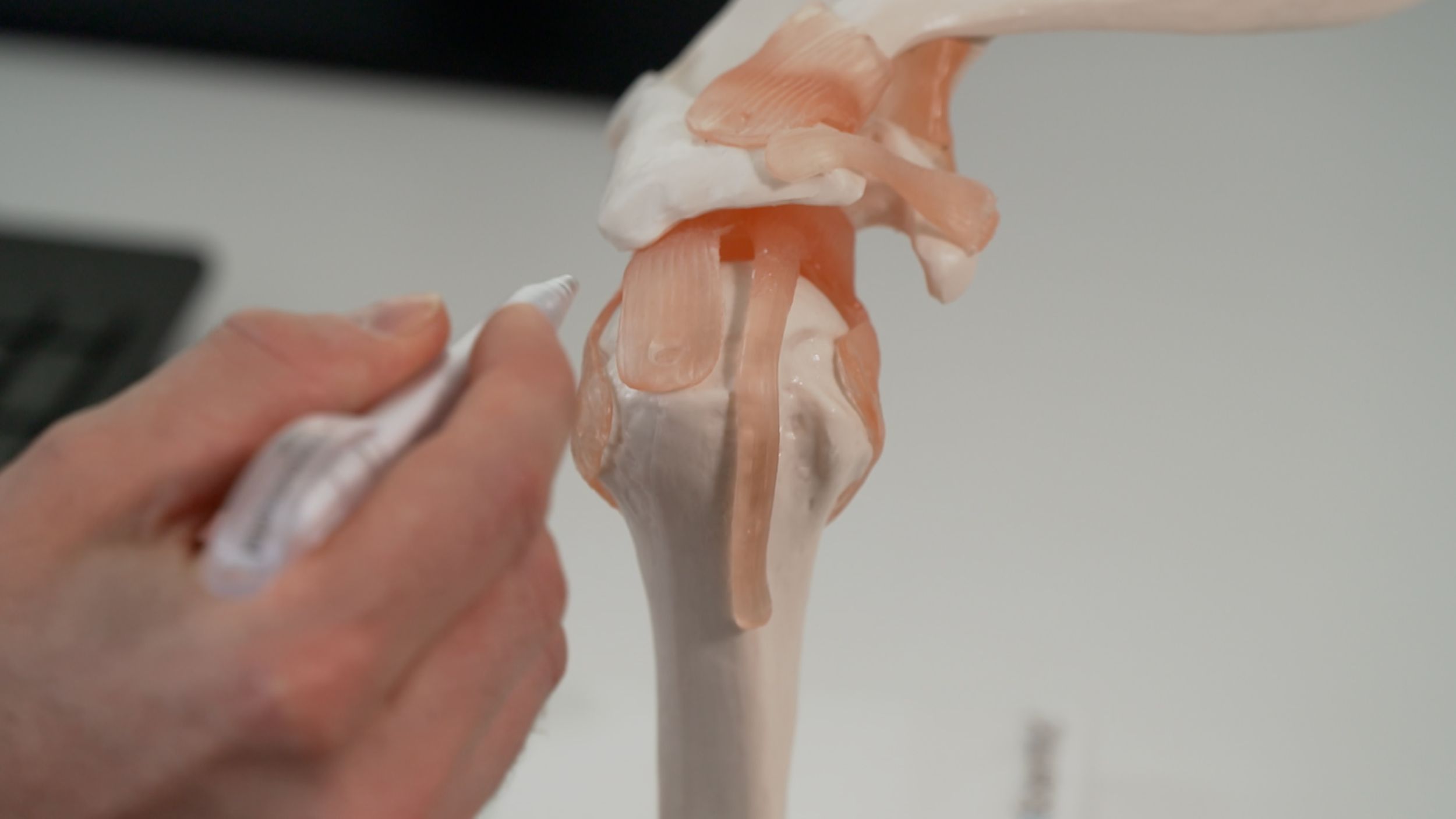
Offer
Patients with acute injuries following accidents are treated at the University Hospital site, for example in traumatology, emergency and intensive care medicine as well as tumors and infections. Elective orthopaedic surgery, such as joint replacements, cruciate ligament operations and much more, takes place at the Bethesda Hospital site.
Our areas of expertise
Accident and trauma
Our focus
- Severely injured/polytraumas (highly specialized medicine)
- Bone fractures of the upper extremity
- Fractures of the pelvis and/or lower limb
- Tendon ruptures
- Bursal injuries
- Open injuries, wounds
Traumatology
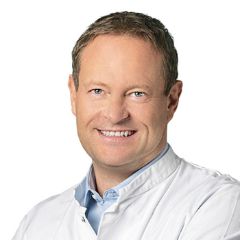
Prof. Karl Stoffel
Stv. Chefarzt
Orthopädie und Traumatologie
Leiter Team Traumatologie / Team Hüfte und Becken
Polytrauma
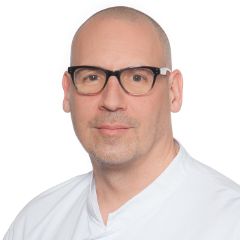
Surgical emergency ward with Fasttrack

Contact Emergency Center
Phone +41 61 265 25 25
Geriatric Trauma Center
In geriatric traumatology, we enable elderly and injured patients to return to their familiar surroundings after a stay in hospital. Our experience shows that, in addition to the consequences of the accident, elderly people often have pre-existing or concomitant conditions that can make treatment more complex. This is why we work together at the Basel Geriatric Trauma Center as a network between the University Hospital Basel (USB) and the University Geriatric Medicine Felix Platter (UAFP).
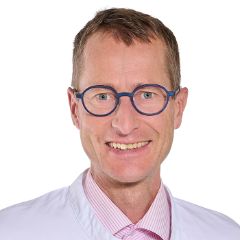
Prof. Norbert Suhm
Leitender Arzt/Zentrumsleiter Alterstraumazentrum
Orthopädie und Traumatologie
Leiter Alterstraumazentrum
Center for Musculoskeletal Infections
The focal points of our center
- Infections of joint prostheses
- Infections after bone fractures
- Infections in diabetic foot syndrome
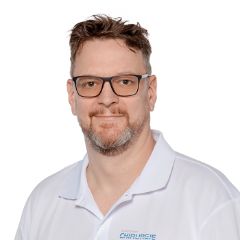
Prof. Martin Clauss
Stv. Chefarzt / Standortleiter Universitätsspital Basel
Orthopädie und Traumatologie
Leiter Zentrum für muskuloskelettale Infektionen (ZMSI)
Shoulder and elbow
Our range of surgical services includes all injuries to the shoulder girdle and all degenerative diseases. Our range of treatments also includes revision operations on tendons, ligaments and prostheses. Minimally invasive surgical techniques minimize the post-operative recovery time. We make treatment decisions based on the latest medical research. We offer our patients optimal treatment, with or without surgery.
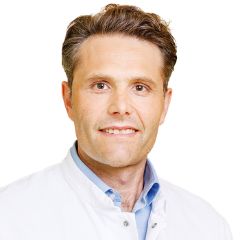
Prof. Andreas Marc Müller
Chefarzt
Orthopädie und Traumatologie
Leiter Team Schulter / Ellenbogen
Hip/pelvis
Our focus
-
Hip arthrosis, hip dysplasia, hip impingement
-
Soft tissue problems (e.g. inflammation of bursae, tendons; limping)
-
Primary hip prosthesis (minimally invasive)
-
Revision hip joint prosthesis incl. complex reconstructions with bone grafting
-
Hip joint arthroscopy (endoscopy)
-
Joint-preserving hip surgery

Prof. Karl Stoffel
Stv. Chefarzt
Orthopädie und Traumatologie
Leiter Team Traumatologie / Team Hüfte und Becken
Knee/sports orthopaedics
Our focus
Accident and sports injuries
- Meniscus and cruciate ligament injuries, collateral ligament injuries and in combination (multi-ligament)
- Cartilage injuries and cartilage transplants
- Patellar dislocation (patellofemoral instability), from simple to complex
- Second and third cruciate ligament injuries (revision surgery)
Chronic complaints
- Axial and rotational corrections for misalignments as a result of accidents and deformities with the help of patient-specific incision blocks (PSI)
- -Treatment of osteoarthritis caused by the consequences of accidents, rheumatic diseases or wear and tear
- Complete knee replacement surgery: from partial prosthesis (sled prosthesis) and total prosthesis to revision arthroplasty
Foot and ankle
State-of-the-art surgical techniques and the latest findings from research and development are used to achieve optimum results. Our range of services covers both acute and chronic complaints in the area of the foot and ankle. Whether sports injuries or chronic degenerative complaints, patients are comprehensively assessed and treated according to their needs.
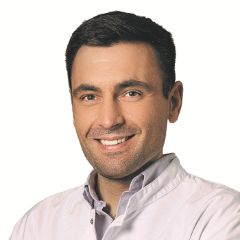
PD Dr. Nicola Krähenbühl
Leitender Arzt
Orthopädie und Traumatologie
Leiter Team Fuss und Sprunggelenk
Technical orthopaedics

PD Dr. Martin Berli
Leitender Arzt
Orthopädie und Traumatologie
Leiter Technische Orthopädie
Not all patients have to stay in hospital in an emergency. For those who can be treated on an outpatient basis, we have set up the so-called "fast track". A specialist in orthopaedics is available to you as soon as you arrive in an emergency, arranges the necessary examinations, such as an X-ray, CT or ultrasound, and determines the next steps. This streamlined procedure allows us to provide rapid and efficient treatment.
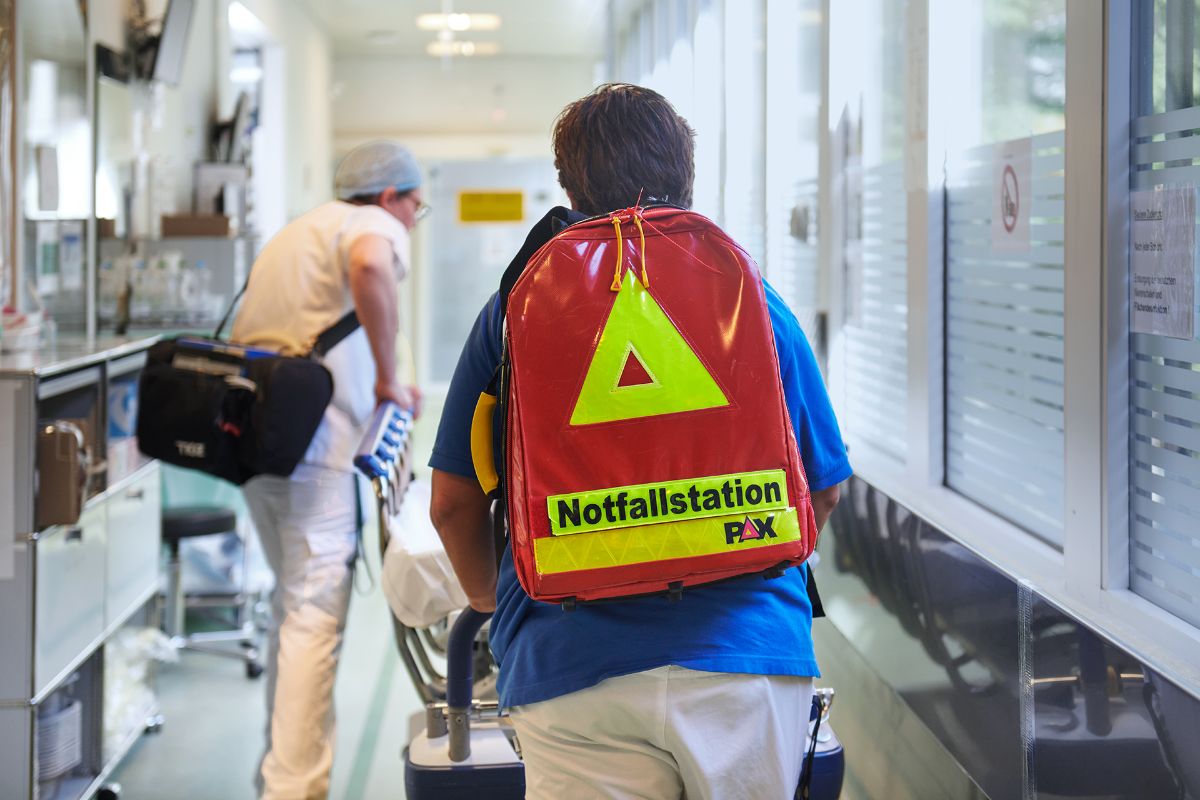
An operation that has been planned for many months and has to be canceled at short notice "due to an emergency" is a scenario that everyone wants to avoid as far as possible. We have therefore consistently separated the treatment paths in our clinic and divided them into two locations: elective, easily plannable treatments and operations on the musculoskeletal system take place at the Orthopaedics Clinic at Bethesda Hospital, while emergency treatments (traumatology) and complex treatments for infections or tumors take place at the University Hospital Basel.
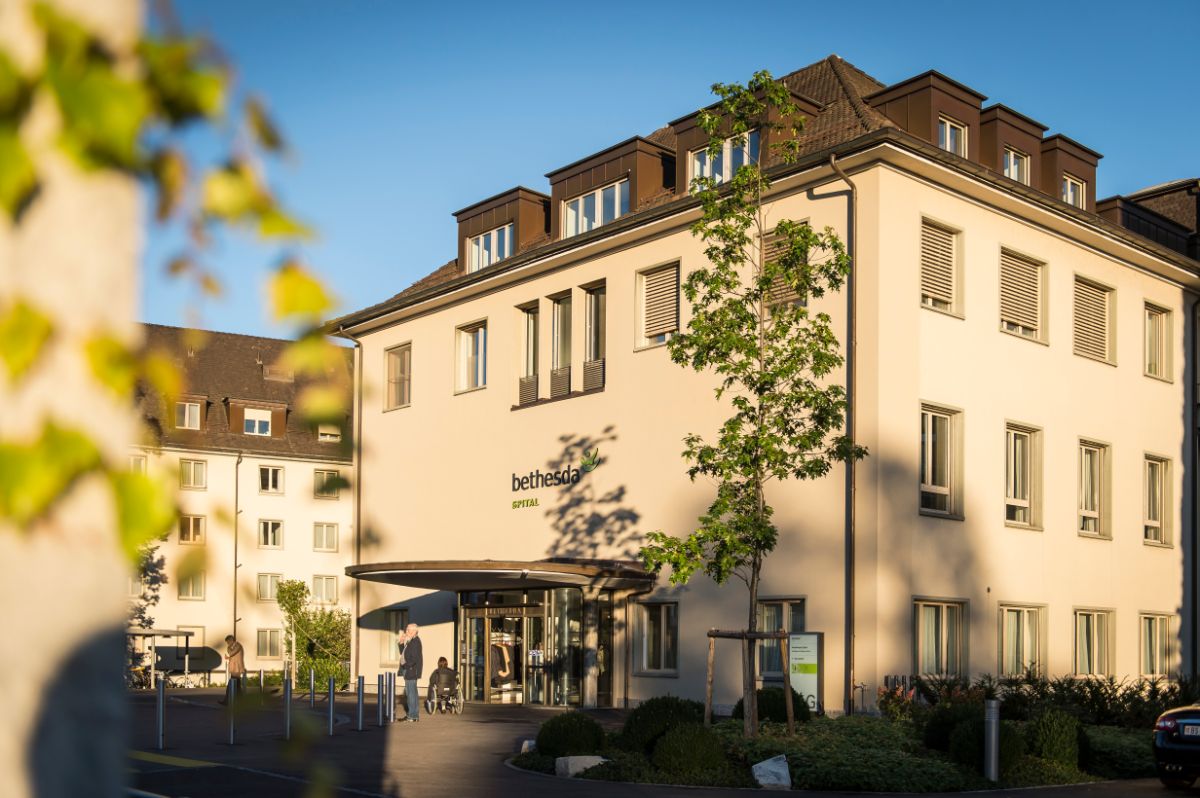
Videos: Questions and answers about age-related bone fractures
Topic week: Age-related bone fractures FAQ: Sina Lachapelle
Topic week: Age-related bone fractures FAQ: Thomas Dreher Hummel
Topic week on age-related bone fractures FAQ: Dr. Reza Kaviani
Themed week on age-related bone fractures: Dr. Franz Haller (lecture)
Topic week on age-related bone fractures FAQ: Dr. Franz Haller
Topic week on age-related bone fractures FAQ: Prof. Norbert Suhm
Topic week on age-related bone fractures: Prof. Norbert Suhm (lecture)
Topic week: Age-related bone fractures FAQ: Sina Lachapelle
Topic week: Age-related bone fractures FAQ: Thomas Dreher Hummel
Topic week on age-related bone fractures FAQ: Dr. Reza Kaviani
Themed week on age-related bone fractures: Dr. Franz Haller (lecture)
Topic week on age-related bone fractures FAQ: Dr. Franz Haller
Topic week on age-related bone fractures FAQ: Prof. Norbert Suhm
Topic week on age-related bone fractures: Prof. Norbert Suhm (lecture)
